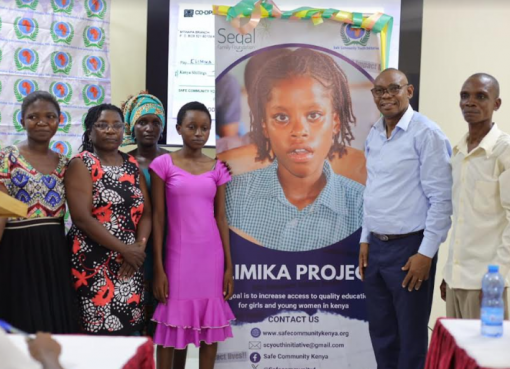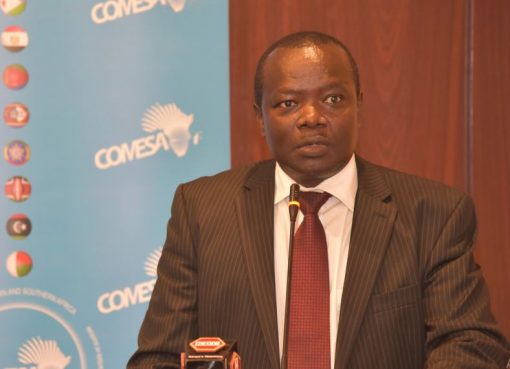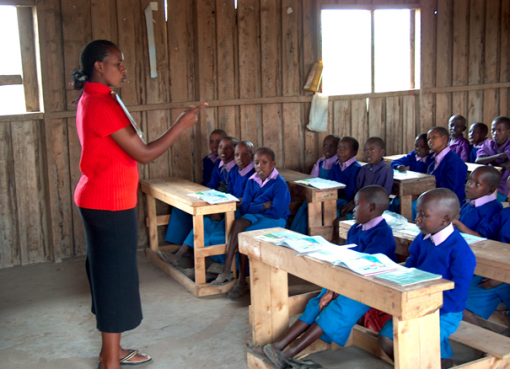The 2020 Kenya Certificate of Secondary Education (KCSE) completed last Wednesday exposed the depth of teenage pregnancies’ crisis in the country after hundreds of candidates wrote their papers in maternity wards for the first time.
Cabinet Secretary in the Ministry of Education Prof. George Magoha earlier stated that all candidates whether pregnant, ill or those with special needs would be given special care to ensure that they sat for national exams without difficulty.
“Any child who has the capacity to sit for the exams, the government will make sure that the examinations are brought to the child wherever they are,” said the CS as he assured the candidates, parents, guardians, and the general public that the Government was doing everything to ensure that the examination cycle was not disrupted by the pandemic.
He further said that they would follow the same procedure as in previous years, adding that the Ministry had finalized modalities to ensure that candidates with special needs were able to take the exams without any hitches.
From Kiambu County, the Director of Education for Kiambu Sub-county Roselyne Litaba noted that the two maternity case in Kiambu county sat their exams unhindered.
“We had a candidate who sat for her exams while in hospital after she delivered. The parents alerted us and we were able to ensure the examinations got to her at the hospital in time where she is recuperating as she delivered through a caesarian section. We are happy that she was able to sit for the papers from a room where she was isolated and her examination given to her as she also nursed her baby in the nursery,” said Ms. Litaba
She added that the other maternity candidate delivered and was able to sit for exams at a day school although the parents reported about the delivery a bit late. “When her colleagues started doing the paper that was when they noted that she was absent and we sent for her though the examination was on. We kept her in a separate room where the examination was administered to her” noted the director.
Much as some girls were affected, the boys too suffered. A 15-year-old boy wrote his KCPE examination at the Kiambu Level 5 hospital where he had been admitted in February 2021. He has suffered burns and the parents and the hospital notified the examination officials who deployed an invigilator to take to him the examination, said Ms. Litaba.
In a different case from Githunguri sub-county, a KCSE student who started his examinations on a good note was unfortunately unable to complete the examination from Monday this week.
“The boy who was experiencing health problems was unfortunately not able to complete his exams because he had been admitted to the Intensive Care Unit (ICU) on 19th April 2021 at the Githunguri level 4 hospital where he is undergoing treatment, though he was at the hospital from the time the examinations began” she added.
Maternal health complications are now the leading cause of death for girls aged 15 to 19 in the world, according to the WHO Adolescent Pregnancy Report 2020.
The report states that in times of strife, such as the current pandemic, pregnant girls and young mothers experience unprecedented incidents, some of which risk their lives.
Kenya created a National Adolescent Sexual and Reproductive Health Policy (ASRH) in 2015. The program aims to increase the sexual and reproductive health of Kenyan adolescents in order to help them reach their full potential and benefit the growth of the country.

Picture by Velma Mukhwana
Teen pregnancy is one of the main areas addressed by the national ASRH Policy. The Policy has created a legal and socio-cultural climate that ensures adolescents have access to Sexual Reproductive Health information and services. In Kenya, more than half of sexually active teenage girls (54%) do not wish to become pregnant and have an unmet need for contraception.
NGO`s are calling for governments to prioritize and fully fund SRHR as part of their COVID-19 response plans, recognizing the essential and life-saving nature of these services.
Previous epidemics have shown that services are often diverted from regular health care, thus limiting access to sexual and reproductive health services, as well as maternal, newborn, and infant health services.
Any of these pregnancies may have been caused by sexual assault, which is expected to increase during COVID-19 lockdowns. This seems to be the case based on lessons learned during the Ebola epidemic in Sierra Leone and Liberia, where school closures resulted in a rise in physical and sexual abuse, teen pregnancy, and unsafe abortions.
At the (ICPD25) the International Conference on Population and Development held in 2019, the Kenya government pledged to end teenage pregnancy by 2030, and high-level intergovernmental committees were established to establish and enforce validated solutions. During the COVID-19 lockdown, these efforts should continue. The rights of young girls to sexual education and the provision of sexual and reproductive health services, including contraception, are among the commitments made.
By Lydia Shiloya and Velma Mukhwana





